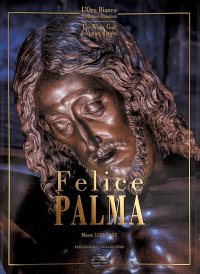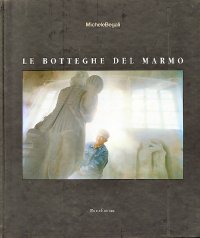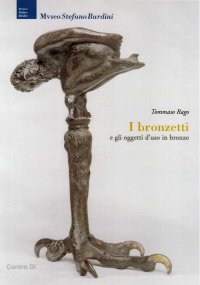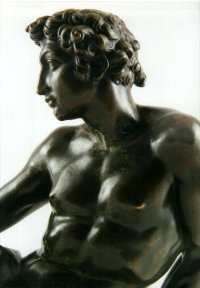Felice Palma. Massa 1583-1625. Collezione / Collection.
Texts by Andrei Cristina, Ciarlo Nicola, Federici Fabrizio, Claudio Casini and Sara Ragni.
Italian and English Text.
Pontedera, 2024; bound in a case, pp. 289, b/w and col. ill., b/w and col. plates, cm 24,5x34.
(L'Oro Bianco. Straordinari Dimenticati. The White Gold Forgotten Masters).
cover price: € 160.00
|
Books included in the offer:
Felice Palma. Massa 1583-1625. Collezione / Collection.
Texts by Andrei Cristina, Ciarlo Nicola, Federici Fabrizio, Claudio Casini and Sara Ragni.
Italian and English Text.
Pontedera, 2024; bound in a case, pp. 289, b/w and col. ill., b/w and col. plates, cm 24,5x34.
(L'Oro Bianco. Straordinari Dimenticati. The White Gold Forgotten Masters).
FREE (cover price: € 160.00)
Le botteghe del marmo
Italian and English Text.
Ospedaletto, 1992; bound, pp. 153, 10 b/w ill., 60 col. ill., cm 24x29.
(Immagine).
FREE (cover price: € 34.49)
Museo Stefano Bardini. I Bronzetti e gli Oggetti d'Uso in Bronzo
Edited by Nesi A.
Firenze, 2009; paperback, pp. 191, 102 b/w ill., 7 col. ill., cm 17x24,5.
(Museo Stefano Bardini).
FREE (cover price: € 30.00)
Bronzetti e Rilievi dal XV al XVIII Secolo
Bologna, 2015; 2 vols., bound in a case, pp. 729, ill., col. plates, cm 21,5x30,5.
FREE (cover price: € 90.00)
L'Ultimo Degas. The Latest Degas
Marco Fagioli
Aiòn Edizioni
Foreword by Francesco Paolo Campione.
Italian and English Text.
Firenze, 2017; paperback, pp. 144, col. ill., cm 17,5x24.
(Saggi. Arte).
series: Saggi. Arte
ISBN: 88-98262-49-3 - EAN13: 9788898262496
Subject: Essays (Art or Architecture),Painting
Period: 1800-1960 (XIX-XX) Modern Period
Languages: 

Weight: 0.79 kg
Degas's painting did not belong to any of these two conditions, the naturalist one or the impressionist one; in spite of its leaning towards classicism, it was treading on new ground, it was experimenting, and the painter's main goal was to "build what he saw". A similar process, the transition from naturalistic writing to experimental language, took place in literature as well, with Zola and his use of the analysis of reality through descriptive assemblage, in Le Roman Experimental. (Marco Fagioli)












